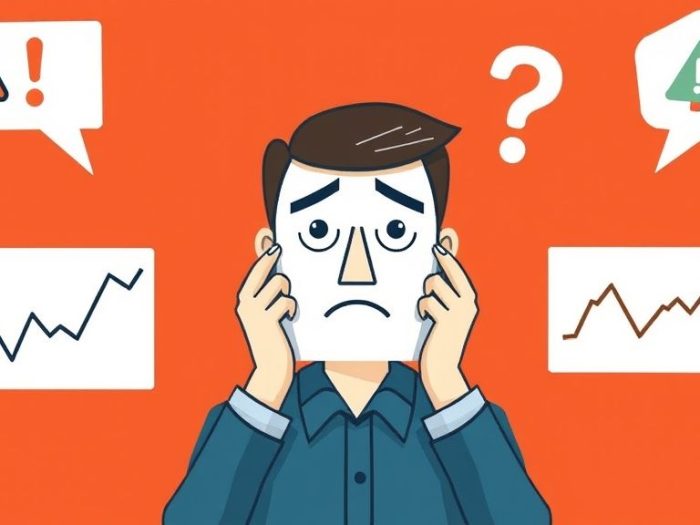Day trading, the practice of buying and selling financial instruments within the same trading day, can be a potentially lucrative but also risky endeavor. Beginners often make common mistakes that can lead to significant financial losses. This article will explore the top 5 day trading mistakes that cost beginners thousands, focusing on how to avoid these pitfalls and establish a foundation for more successful trading.
Understanding the Challenges of Day Trading
Day trading is a demanding activity that requires skill, discipline, and a deep understanding of market dynamics. Beginners often underestimate the challenges involved:
-
Volatility: Day trading involves capturing small price movements, which can be highly volatile and unpredictable.
-
Speed: Decisions must be made quickly, often under pressure.
-
Competition: Day traders compete with experienced professionals and sophisticated algorithms.
-
Emotional Control: Fear and greed can lead to impulsive and costly mistakes.
Top 5 Day Trading Mistakes That Cost Beginners Thousands
Here are 5 common mistakes that beginners make, often with significant financial consequences:
1. Lack of a Trading Plan
Trading without a well-defined plan is like driving without a map. A trading plan provides structure, discipline, and objectivity. Without it, beginners are more likely to:
-
Make impulsive decisions.
-
Chase losses.
-
Fail to adhere to a strategy.
-
Lack clear entry and exit rules.
2. Inadequate Risk Management
Poor risk management is a major cause of losses for beginner day traders. This includes:
-
Risking too much capital on a single trade.
-
Not using stop-loss orders.
-
Overleveraging their positions.
-
Failing to control losses.
3. Emotional Trading
Emotions like fear and greed can significantly impair trading decisions. Beginners often:
-
Panic sell during price dips.
-
Hold onto losing positions for too long.
-
Chase profits aggressively.
-
Trade impulsively based on emotions.
4. Ignoring Market Fundamentals and Technicals
Beginners may focus solely on one aspect of trading while ignoring others. This could include:
-
Trading without understanding market trends.
-
Ignoring key support and resistance levels.
-
Failing to use technical indicators to confirm signals.
-
Not understanding the underlying fundamentals of the stocks they trade.
5. Overtrading
Beginners often overtrade, leading to increased transaction costs and poor decision-making. This includes:
-
Trading too frequently without clear setups.
-
Chasing every small price movement.
-
Ignoring the impact of commissions and fees.
-
Not being selective with their trades.
How to Avoid These Costly Mistakes
-
Develop a Trading Plan: Create a detailed trading plan that outlines your strategy, entry and exit rules, risk management, and trading goals.
-
Implement Risk Management: Use stop-loss orders, limit your capital at risk per trade, and avoid overleveraging.
-
Control Emotions: Practice discipline, patience, and emotional control. Avoid trading based on fear or greed.
-
Educate Yourself: Learn technical analysis, market fundamentals, and trading strategies. Continuously expand your knowledge.
-
Be Selective: Focus on high-probability setups and avoid overtrading. Quality over quantity.
-
Practice: Use a paper trading account (demo account) to practice your strategies before risking real money.
Conclusion
Avoiding these top 5 day trading mistakes is crucial for beginners to minimize losses and increase their chances of success. By developing a trading plan, implementing risk management, controlling emotions, educating themselves, and being selective with their trades, beginners can establish a stronger foundation for their day trading journey. Remember that day trading involves significant risk, and even experienced traders can incur losses. This information is for educational purposes only and should not be considered financial advice. Always consult with a qualified financial advisor before making any trading decisions.
Related Keywords
Day trading mistakes, beginner trading mistakes, day trading losses, how to avoid trading mistakes, trading plan, risk management, emotional trading, trading education, day trading strategy, trading for beginners.
Frequently Asked Questions (FAQ)
1. What are some of the common challenges faced by beginner day traders?
Beginner day traders often face challenges like high market volatility, the need for quick decision-making, intense competition, and the difficulty of controlling emotions like fear and greed.
2. Why is a trading plan important for day traders?
A trading plan provides structure, discipline, and objectivity, helping traders avoid impulsive decisions, remain consistent, and manage risk effectively.
3. What does poor risk management in day trading involve?
Poor risk management includes risking too much capital per trade, not using stop-loss orders, overleveraging positions, and failing to control losses.
4. How can emotions negatively impact day trading?
Emotions like fear and greed can lead to impulsive actions such as panic selling, holding onto losing positions for too long, chasing profits aggressively, and trading emotionally.
5. What does ignoring market fundamentals and technicals mean?
Ignoring market fundamentals and technicals involves trading without understanding market trends, disregarding support and resistance levels, failing to use technical indicators, and not considering the underlying fundamentals of the stocks being traded.
6. What does overtrading involve?
Overtrading involves trading too frequently without clear setups, chasing every small price movement, ignoring the impact of commissions and fees, and not being selective with trades.
7. How can beginners avoid costly trading mistakes?
Beginners can avoid costly mistakes by developing a trading plan, implementing risk management strategies, controlling emotions, educating themselves, being selective with trades, and practicing with a paper trading account.
8. Is it important to use stop-loss orders?
Yes, using stop-loss orders is crucial for managing risk and limiting potential losses on trades.
9. Why is it important to educate yourself as a day trader?
Education is important for day traders to understand market dynamics, develop effective strategies, and make informed trading decisions.
10. What is a paper trading account and why is it useful?
A paper trading account, or demo account, allows beginners to practice trading strategies without risking real money, providing a valuable learning experience.



